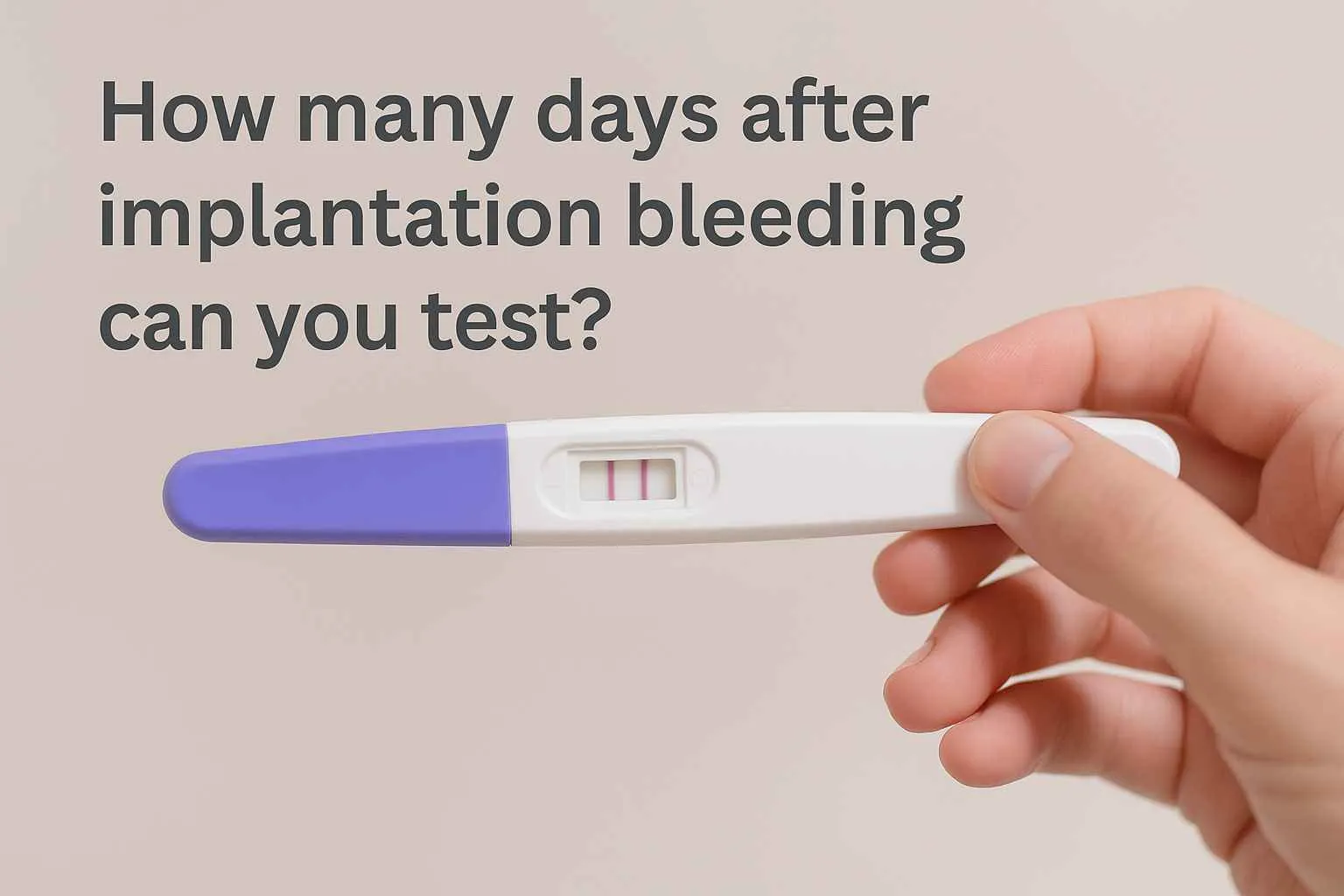Can you get pregnant without realizing it? Even if you've had pregnancy tests and visited your doctor, the answer is still yes. You may have read or heard horrifying tales about women who didn't find out they were pregnant until they were in labor in the loo. It's a cryptic pregnancy when this occurs, and it may occur more frequently than you believe.
Cryptic pregnancy is what it sounds like: it seems strange and remains undiscovered until labor starts. Here's what you need to understand about cryptic pregnancies, including what they are and how to confirm one.
What exactly is a cryptic pregnancy?
When a pregnant person is unaware that they are pregnant, it is referred to as a cryptic pregnancy (or stealth pregnancy). Sometimes, a person won't know they're pregnant until labor starts.
Most women become aware of their pregnancy between four and twelve weeks of their pregnancy. This can be the case if they exhibit pregnancy-related symptoms or their period is missing. A positive pregnancy test result can confirm being pregnant. Nothing makes people think they are pregnant when they have a mysterious pregnancy. This might be the case if they don't experience pregnancy symptoms, think a virus causes them, or if their pregnancy test result is inaccurate.
Also Read: Common Health Conditions During Pregnancy
What is the cause behind cryptic pregnancy?
Hormones are primarily to blame for a covert pregnancy. Let's examine a few physiological explanations for why someone can have a mysterious pregnancy.
It could take some time for someone who just became pregnant or gave birth for their hormones to resume their regular cycles. A person may start ovulating during this period, or for as long as they are breastfeeding, without realizing it, which could lead to a cryptic pregnancy. Like menopause, cryptic pregnancies can result from abnormal hormone cycles caused by perimenopause.
If someone is engaging in unprotected intercourse, they still risk becoming pregnant even if they are using birth control. They may not have pregnancy symptoms if they continue using birth control while pregnant, leading to a cryptic pregnancy.
High-stress levels can interfere with common pregnancy symptoms because stress affects hormones. Low body fat can also lead to hormonal imbalances, which could result in a pregnancy without any symptoms. A cryptic pregnancy may also result from polycystic ovarian syndrome (PCOS), which causes erratic or protracted hormone cycles.
Certain psychiatric problems can also lead to cryptic pregnancies, though they are less prevalent. It's known as a "denial of pregnancy," it happens when a woman has a strong conviction that she is not pregnant even though testing confirms it.
Who is susceptible to cryptic pregnancies?
A mysterious pregnancy can happen to anybody. You might be more vulnerable if you:
Just gave birth: It may take many months for your period to start returning, and if you're nursing (chestfeeding), you might not ovulate. This may lead some people to believe they are protected from getting pregnant. Predicting when you first ovulate while breastfeeding and become more fertile is impossible.
A polycystic ovarian syndrome (PCOS)-like condition: Unpredictable periods are a symptom of PCOS. They are accustomed to skipping periods, so if they do so, they might not detect pregnancy.
Use birth control: Those who use birth control may erroneously believe they are immune to pregnancy. Even when used properly, there is a slight possibility of failure.
Currently in perimenopause: Women in their 40s may believe they are too old to become pregnant or confuse the signs of pregnancy with those of menopause.
Never been pregnant: You are less likely to be familiar with how pregnancy feels if you have never been pregnant. Therefore, it may take longer for a pregnancy to be discovered.
Also Read: Birth Control Pills: Is It For You?
How is it possible for the test to be negative?
Hormonal imbalance is the main cause of a covert pregnancy, but which hormone is undetected? Low hCG (human chorionic gonadotropin) hormone levels are most likely the cause of a negative pregnancy test even when you are pregnant (if you have the necessary information, you can use our online hCG calculator to track your levels).
Antibiotics, medicines, and even fertility treatments can all affect hCG levels. Taking the test too soon after a missed period is another factor that could result in a misleading negative pregnancy test result. A week after missing a period, many medical professionals advise retaking the test to double-check the results. Since urine is more concentrated in the morning, taking the test may also result in more accurate results.
Follow the directions on the pregnancy test package carefully, and wait the recommended time before examining the findings.
How could an ultrasound miss a cryptic pregnancy?
A fetus inside the womb can occasionally be missed by ultrasound. Between 10 and 13 weeks gestation, medical professionals typically use ultrasound imaging to detect pregnancy in its early stages. Before the seventh week of pregnancy, an ultrasound is rare to reveal a heartbeat. After that, transvaginal ultrasound should have little trouble picking up a fetal heartbeat.
The time of conception is also crucial to know. If the predicted last menstrual period is wrong by a few days or the ovulation cycle is erratic, it may or may not affect whether a heartbeat is seen during an early ultrasound in early pregnancy.
If an ultrasound scan doesn't indicate pregnancy, there are a few potential explanations:
-
The embryo did not implant where it usually would in the uterus.
-
The uterus' shape or location conceals the embryo.
-
Transvaginal ultrasound is typically far more accurate in the early stages of pregnancy than abdominal ultrasound.
A blood test to quantify hCG and repeated ultrasound examinations may be needed to rule out the potential of an ectopic pregnancy when an intrauterine pregnancy cannot be determined with reasonable certainty.
Also Read: 6 Symptoms Of Ovulation And How To Monitor it
What are the symptoms of a cryptic pregnancy?
The symptoms of a normal pregnancy are present in people with cryptic pregnancies. The main distinction is that a pregnant person is unaware that pregnancy is the root cause of their symptoms. For instance, people can believe they're tired because they need to sleep more or are sick due to eating a particular cuisine.
Additional indications of a covert pregnancy include:
Missed period: The absence of the menstrual cycle is usually a sign of pregnancy. However, this isn't always the case. You might not be aware that you missed your period because of pregnancy if your cycles are always erratic.
Mild spotting: Some women experience mild spotting or light bleeding in the early stages of pregnancy and mistake it for a period.
False negative pregnancy test result: This occurs when a test indicates that a woman is not pregnant when, in fact, she is. An at-home pregnancy test can give you an incorrect result if you don't use it properly. It's best to speak with a healthcare professional to confirm a pregnancy to be certain.
Weight gain or a swollen belly: Some women may not realize they've gained weight while pregnant, or they may blame a particular food for an especially bloated belly.
Fetal movement: Most pregnant women don't feel the fetus move until around halfway through the pregnancy. The placenta is in the front of your tummy if it is anterior. Kicks may be harder to feel as a result. This can be why you are unaware you are pregnant during a cryptic pregnancy.
Unaware of pregnancy symptoms: Young children and people with developmental disabilities may not recognize typical pregnancy symptoms such as missed menstruation, sensitive breasts, or nausea.
Also Read: From Conception to Birth: A Guide to Stage of Development of the Fetus
Conclusion
It's a real condition to be pregnant and be unaware of it. Although they are unusual, cryptic pregnancies occasionally occur. A person may go several months or the entire pregnancy without realizing they are pregnant in a cryptic pregnancy.
Knowing the indications of pregnancy and getting a pregnancy test from a healthcare professional if you have any suspicions of pregnancy are the finest things you can do if you engage in sexual activity. Frequent prenatal care is crucial for your and the fetus's health and security.
For the right treatment, book a gynecologist in Delhi now!

Reviewed by







